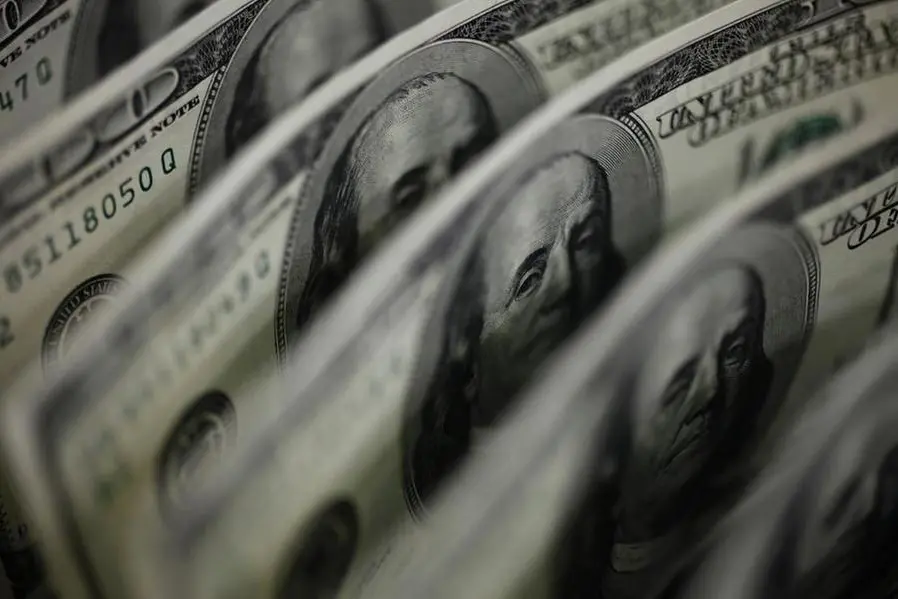PHOTO
The dollar slid against most currencies in choppy, thin trading on Friday as data signaled that the U.S. economy is cooling a bit, reinforcing expectations of smaller interest rate increases from the Federal Reserve and improving investors' risk appetite.
The personal consumption expenditures (PCE) price index rose 0.1% last month after climbing 0.4% in October. In the 12 months through November, the PCE index increased 5.5% after advancing 6.1% in October. Excluding the volatile food and energy components, the PCE index gained 0.2% after increasing 0.3% in October.
The so-called core PCE price index rose 4.7% on a year-on-year basis in November after increasing 5.0% in October. The Fed tracks the PCE price indexes for its monetary policy. Wall Street indexes ended higher on the day, while commodity currencies such as the Australian, New Zealand and Canadian dollars, which are highly sensitive to risk sentiment, also gained against the greenback. Investors also sold safe-haven Treasuries, pushing yields higher. "Stocks are feeling a little more comfortable today. There seems to be no panic," said Amo Sahota, executive director at FX consulting firm Klarity FX in San Francisco.
"The inflation data is moving in the right direction, although not fast enough and the growth in the U.S. economy has not been hindered significantly. It's growing still at a gradual pace and there's no choking of the economy just yet," he added. The Fed is widely expected to raise interest rates by just 25 basis points at its next policy meeting, in January, after multiple big increases. In afternoon trading, the euro rose 0.2% against the dollar to $1.0619. The single European currency is on pace to end the week up 0.4%, its second straight week of gains.
Euro net longs also rose to 142,272 contracts, the largest since January 2021, according to U.S. Commodity Futures Trading Commission data released on Friday. The Australian, New Zealand and Canadian currencies advanced against the U.S. dollar. The Aussie unit was up 0.4% at US$0.6710, the kiwi, or New Zealand dollar, gained 0.7% to US$0.6288. Against the Canadian dollar, the greenback fell 0.4% to C$1.3590. The Canadian dollar also benefited from data showing that the Canadian economy grew by 0.1% in October versus September, with another 0.1% increase in GDP seen likely in November, Statistics Canada data showed. Against the yen, however, the dollar rose 0.4% to 132.82 yen.
The dollar though, was on track for a weekly drop of 2.8% after the Bank of Japan (BOJ) tweaked a key bond market policy earlier this week. CFTC data showed net yen shorts declined to 40,881 contracts, the smallest since August. A second report on Friday showed new orders for U.S.-made capital goods rose moderately in November while shipments fell, pointing to a slowdown in business spending on equipment this quarter as higher borrowing costs cool demand for goods. Orders for non-defense capital goods excluding aircraft, a closely watched
These so-called core capital goods orders increased 0.3% in October. However, shipments of core capital goods dipped 0.1% after increasing 1.4% in October. Another piece of data showed U.S. consumers expect price pressures to moderate notably in the next year, with a benchmark survey on Friday showing the one-year inflation outlook dropping in December to the lowest in 18 months. This is a key number that Fed Chair Jerome Powell mentioned in one of his press briefings. In what has been a brutal year for global markets, the dollar has surged almost 9% as the Fed has aggressively hiked rates to tame inflation. The dollar index, however, has dropped more than 8% since hitting a 20-year high in September, with a sharp slowdown in U.S. inflation raising hopes that the Fed may soon end its tightening cycle. The index was last little changed at 104.35.
(Reporting by Gertrude Chavez-Dreyfuss; Additional reporting by Harry Robertson in London and Rae Wee in Singapore; Editing by Louise Heavens, Jonathan Oatis, Leslie Adler and Richard Chang)





















